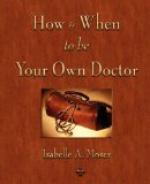Digestion means chemically changing the foods we eat into substances that can pass into the blood stream and circulate through the body where nutrition is used for bodily functions. Our bodies use nutritional substances for fuel, for repair and rebuilding, and to conduct an incredibly complex biochemistry. Scientists are still busily engaged in trying to understand the chemical mysteries of our bodies. But as bewildering as the chemistry of life is, the chemistry of digestion itself is actually a relatively simple process, and one doctors have had a fairly good understanding of for many decades.
Though relatively straightforward, a lot can and does go wrong with digestion. The body breaks down foods with a series of different enzymes that are mixed with food at various points as it passes from mouth to stomach to small intestine. An enzyme is a large, complex molecule that has the ability to chemically change other large, complex molecules without being changed itself. Digestive enzymes perform relatively simple functions—breaking large molecules into smaller parts that can dissolve in water.
Digestion starts in the mouth when food is mixed with ptyalin, an enzyme secreted by the salivary glands. Pylatin converts insoluble starches into simple sugars. If the digestion of starchy foods is impaired, the body is less able to extract the energy contained in our foods, while far worse from the point of view of the genesis of diseases, undigested starches pass through the stomach and into the gut where they ferment and thereby create an additional toxic burden for the liver to process. And fermenting starches also create gas.
As we chew our food it gets mixed with saliva; as we continue to chew the starches in the food are converted into sugar. There is a very simple experiment you can conduct to prove to yourself how this works. Get a plain piece of bread, no jam, no butter, plain, and without swallowing it or allowing much of it to pass down the throat, begin to chew it until it seems to literally dissolve. Pylatin works fast in our mouths so you may be surprised at how sweet the taste gets. As important as chewing is, I have only run into about one client in a hundred that actually makes an effort to consciously chew their food.
Horace Fletcher, whose name has become synonymous with the importance of chewing food well (Fletcherizing), ran an experiment on a military population in Canada. He required half his experimental group to chew thoroughly, and the other half to gulp things down as usual. His study reports significant improvement in the overall health and performance of the group that persistently chewed. Fletcher’s report recommended that every mouthful be chewed 50 times for half a minute before being swallowed. Try it, you might be very surprised at what a beneficial effect such a simple change in your approach to eating can make. Not only will you have less intestinal gas, if overweight you will probably find yourself getting smaller because your blood sugar will elevate quicker as you are eating and thus your sense of hunger will go away sooner. If you are very thin and have difficulty gaining weight you may find that the pounds go on easier because chewing well makes your body more capable of actually assimilating the calories you are consuming.




